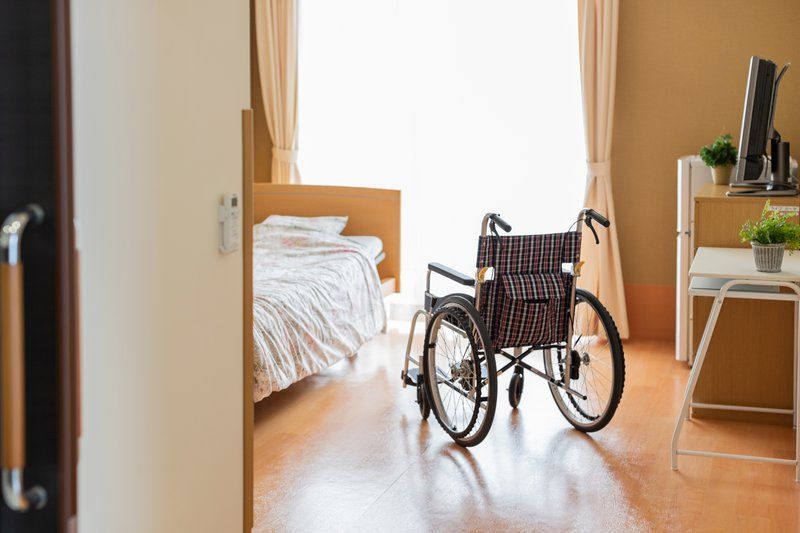Give us a call: (303) 814-2688
Email us on: francis@assuredal.com
BLOG
Assisted Living vs. Nursing Homes: Choosing Right
What are the core differences in daily care services between assisted living vs. nursing homes? Understanding these distinctions is crucial for making informed decisions about the best care options for your loved ones. This article will delve into the specific daily care services and costs associated with both assisted living and nursing homes, providing a comprehensive comparison to help you choose the right option.
The Real Differences: Assisted Living vs. Nursing Homes
Assisted living vs. nursing homes. Each serve different purposes and cater to varying needs. Assisted living facilities focus on providing a supportive environment where residents can maintain a high level of independence. These communities offer personal care services, social activities, and assistance with daily tasks, but they do not provide intensive medical care. The environment is typically more home-like, fostering a sense of community and engagement.

In contrast, nursing homes are designed for individuals who require constant medical supervision and care. These facilities offer comprehensive medical services, including rehabilitation, skilled nursing care, and assistance with activities of daily living. The environment in nursing homes is more clinical, with a stronger emphasis on healthcare and medical support.
The level of resident independence also varies significantly between the two. Assisted living residents often have private apartments and can participate in a wide range of activities, promoting autonomy and social interaction. Nursing home residents, however, usually have less independence due to their medical needs, and the care provided is more structured and regimented.
Daily Care Services in Assisted Living
Assisted living facilities offer a range of daily care services designed to support residents while promoting their independence. Personal care services include assistance with bathing, dressing, grooming, and medication management. These services are tailored to each individual's needs, ensuring that residents receive the right level of support without compromising their autonomy.
Housekeeping services in assisted living communities help maintain a clean and comfortable living environment. Staff members handle tasks such as laundry, cleaning, and maintenance, allowing residents to focus on enjoying their daily activities. This support contributes to a stress-free lifestyle, enhancing overall well-being.
Social activities are a cornerstone of assisted living, fostering a sense of community and engagement. Residents can participate in a variety of events, from fitness classes and arts and crafts to group outings and cultural programs. These activities not only provide entertainment but also promote physical and mental health, creating a vibrant and dynamic living experience.
Daily Care Services in Nursing Homes
Nursing homes provide a comprehensive range of daily care services, primarily focused on medical and clinical needs. Residents receive round-the-clock medical care from licensed professionals, including doctors, nurses, and therapists. This care includes medication administration, wound care, and monitoring of chronic conditions, ensuring that residents' health needs are consistently met.
Rehabilitation services are a key component of nursing home care. Facilities offer physical, occupational, and speech therapy to help residents recover from surgeries, injuries, or illnesses. These therapies are tailored to individual needs, promoting recovery and improving quality of life. The goal is to help residents regain as much independence as possible.
Making the Right Choice for Your Loved One: Assisted Living vs. Nursing Homes
Choosing assisted living vs. nursing homes requires careful consideration of several factors to ensure the best fit for your loved one. Medical requirements are paramount. If your loved one needs constant medical supervision or specialized care, a nursing home may be the more appropriate choice. Conversely, if they require minimal medical intervention but need help with daily activities, assisted living can provide the necessary support while promoting independence.

Social engagement is another critical factor. Assisted living facilities often offer a vibrant social calendar with various activities and events designed to foster community and interaction. If maintaining an active social life is important to your loved one, assisted living may be the better option. Nursing homes also provide social activities, but the focus is more on medical care, which might limit the range of available social opportunities.
Financial considerations play a significant role in the decision-making process. As previously discussed, assisted living generally costs less than nursing homes. Families should evaluate their financial situation, including available resources such as long-term care insurance, veterans' benefits, and Medicaid. Understanding the cost structure and potential financial assistance options can help in making an informed choice.
Finding the Best Fit for Quality of Life
Understanding the differences in daily care services and costs between assisted living and nursing homes is crucial for making the right choice for your loved one. Assisted living offers a supportive environment with personal care, social activities, and a focus on independence. Nursing homes provide comprehensive medical care and rehabilitation services for those with significant health needs. Costs vary significantly, with assisted living generally being more affordable than nursing homes. Talk to us to learn how Assured Senior Living can provide the best options for your loved ones.
When Care Matters! The best care for what matters most. Contact us today, or download our free Family Decision Toolkit guide for more information.
All Rights Reserved | Assured Senior Living















